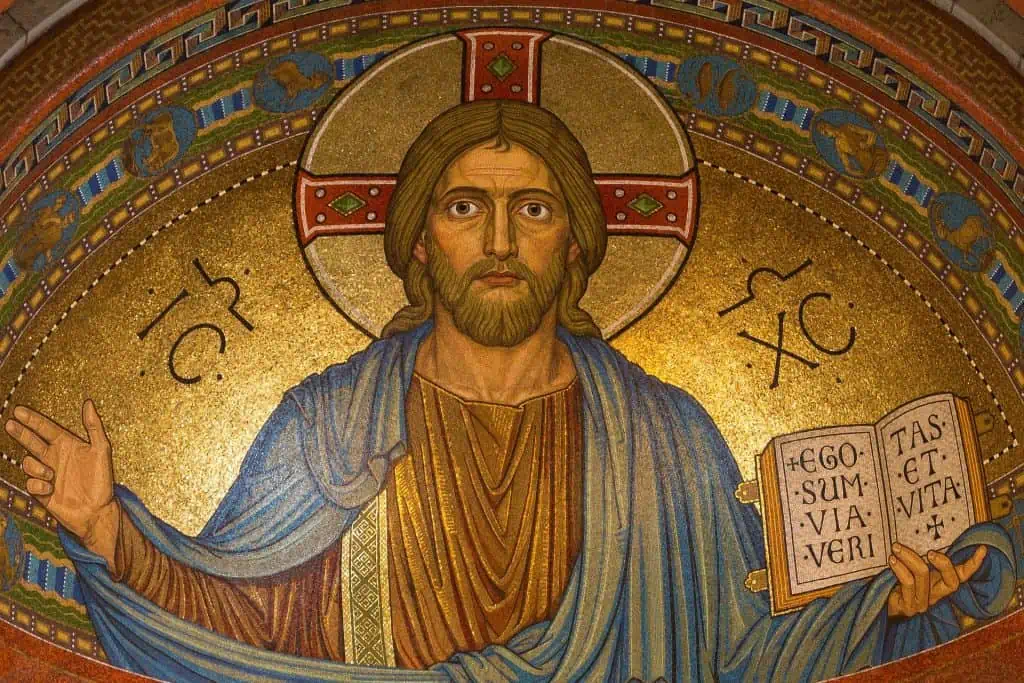Christianity, a profound tapestry woven through the annals of history, beliefs, and myriad surprises, offers a wealth of intriguing intricacies. As one of the globe’s predominant religions, Christianity encompasses over two billion adherents and unfolds a narrative rich in evolution, culture, and fervent faith. Herein lies a compendium of compelling facts, highlighting its historical milestones, core beliefs, and the fascinating surprises that characterize this faith.
1. The Historical Genesis and Evolution
Christianity emerged in the 1st century CE, nestled within the bosom of Judaic traditions. It began amid the tumultuous backdrop of the Roman Empire, where Jesus of Nazareth preached messages of love, compassion, and redemption. This nascent movement faced considerable tribulation, including persecution under emperors, yet it burgeoned through the relentless devotion of its early followers.
A pivotal moment in its history occurred in 313 CE with the Edict of Milan, which granted religious freedom, allowing Christianity to spread with newfound vigor throughout Europe and beyond. By the end of the 4th century, Emperor Theodosius I deemed Christianity the official state religion of the Roman Empire, cementing its influence in Western civilization.
2. The Canonization of Scripture
The formation of the Christian biblical canon was a meticulous endeavor, akin to assembling a jigsaw puzzle with diverse and sometimes contentious pieces. The texts that comprise the Old and New Testaments were scrutinized for authenticity, teachings, and consistency with the faith. This process reached a denouement in the 4th century, where bishops and theologians gathered to deliberate the validity of various texts.
Ultimately, the Council of Carthage in 397 CE reaffirmed a collection of 27 New Testament books, which continue to inform Christian doctrine today. The Bible, a literary and spiritual beacon, is the most published book in history, embodying both historical documentation and sacred scripture.
3. Variegated Denominational Landscape
Christianity is not monolithic; it is an intricate mosaic composed of over 45,000 denominations worldwide. These branches spring from historical, cultural, and theological divergences. The principal divisions include Roman Catholicism, Eastern Orthodoxy, and Protestantism, the latter birthed from the Reformation in the 16th century, questioning the dogmas and practices of the Catholic Church.
Protestantism itself splintered into various sects, each adding unique interpretations of Scripture and theological emphases, exemplifying the religion’s capacity for adaptation and diversity.
4. Core Beliefs: The Pillars of Faith
At its heart, Christianity revolves around several foundational beliefs. The concept of the Trinity—God as Father, Son, and Holy Spirit—stands central, delineating the multifaceted nature of the divine. Christianity posits that Jesus’ crucifixion and subsequent resurrection constitute the cornerstone of salvation, presenting an offer of grace to humanity.
Moreover, Christians adhere to the teachings of Jesus as articulated in the Gospels, emphasizing love, forgiveness, and redemption. The Sermon on the Mount, a profound discourse on ethical living, encapsulates much of Christ’s teachings, urging followers to manifest compassion and humility in their daily interactions.
5. Rituals and Practices: The Expression of Faith
Christianity is replete with rituals, each imbued with meaningful symbolism. Baptism, often regarded as the rite of initiation, symbolizes purification and the believer’s commitment to a life in Christ. The Eucharist, or Communion, represents the body and blood of Christ, serving as a poignant reminder of His sacrifice.
In addition to these sacraments, worship services vary greatly across denominations, reflecting diverse cultural practices and theological beliefs. From the solemnity of a traditional liturgy to the exuberance of contemporary praise and worship, these gatherings foster community and collective expression of faith.
6. Surprising Historical Figures
Christianity’s narrative is punctuated by a plethora of intriguing figures whose lives left indelible marks on its trajectory. One of the most surprising is Constantine the Great, whose conversion radically altered the landscape of Western religion. Another compelling character is Julian the Apostate, who sought to restore paganism in the Roman Empire and directly counter the burgeoning influence of Christianity.
Another notable figure is Saint Francis of Assisi, venerated for his profound connection to nature and his dedication to living a life of poverty and simplicity. His embrace of the natural world has inspired environmental consciousness within contemporary Christian teachings.
7. Christianity and Global Influence
The global reach of Christianity exerts a significant impact on cultures, politics, and societies worldwide. The establishment of hospitals, schools, and orphanages can be traced back to Christian missions aiming to embody the tenets of love and charity espoused by Jesus. Moreover, Christian social teachings have informed civil rights movements, humanitarian efforts, and peace initiatives, underscoring the religion’s enduring relevance.
8. Mystical and Esoteric Dimensions
Beyond the dogma, Christianity houses a mystical and esoteric dimension that encompasses doctrines like Gnosticism, exploring the interplay of knowledge and faith. Throughout history, mystical figures such as Hildegard of Bingen and Teresa of Avila have offered profound insights into the spiritual experience, emphasizing the union with God through contemplative practices and divine visions.
9. Contemporary Challenges and Resilience
In the modern era, Christianity faces multifaceted challenges ranging from secularism to interfaith dialogue. Yet, it displays remarkable resilience. The church has continuously adapted to societal changes, reformulating its message to resonate within contemporary contexts, all while remaining anchored in its foundational beliefs.
10. Intrigue and Paradox
At the intersection of rapture and lamentation, Christianity embodies a unique paradox: it is a faith steeped in mystery yet grounded in history, inviting believers to navigate the complexities of existence. As it continues to evolve, Christianity remains a poignant testament to the ongoing quest for meaning, purpose, and understanding within the grand tapestry of human experience.
In summary, the intricate allure of Christianity lies not only in its historical legacy and core beliefs but also in the surprises embedded within its ongoing narrative. Its capacity to adapt, inspire, and provoke inquiry ensures its place as a central component of global culture and spirituality.











